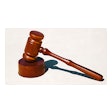Copyright 2017 The Post and Courier
All Rights Reserved
Post & Courier (Charleston, SC)
When exactly did the FBI decide that NCAA regulations were the law of the land? When did it conclude that, in addition to hunting down terrorists and investigating insider trading, its mandate also included protecting amateurism in college sports?
For years, athletic shoe companies like Nike and Adidas paid coaches to have their team wear their brand of sneaker. Were coaches like Rick Pitino, John Thompson and Jim Valvano being bribed by the shoe company representatives? You certainly could frame it that way. But nobody did. Neither law enforcement nor the NCAA ever protested.
In 2006 - to pick just one among the many, many NCAA scandals over the years - two less-than-reputable agents gave the family of the University of Southern California's star running back, Reggie Bush, gifts and benefits, including the free use of a house, worth hundreds of thousands of dollars. They did so in the expectation that Bush would sign with them when he decided to turn pro. (He didn't.) Although the university was severely punished by the NCAA, the FBI chose not to look into the matter. Why would it? Giving a star athlete's family the use of a house may be unseemly, and it may violate NCAA's rules regarding amateurism, but it doesn't violate the laws on the United States. Not even close.
And yet on Tuesday, the U.S. attorney for the Southern District of New York - that's Preet Bharara's old jurisdiction, before the president fired him - announced with great fanfare that it had cracked a college basketball bribery scandal. According to the complaints, four assistant basketball coaches from big-time sports schools - Auburn, the University of South Carolina, the University of Arizona and the University of Southern California - accepted bribes to steer top prospects to certain agents and financial advisers. (An agent was also indicted.)
In addition, James Gatto, the director of global marketing for Adidas Basketball, was charged with bribing top high school players and their families to go to schools like the University of Louisville with which Adidas has a contract to supply shoes and uniforms. In one case he is said to have paid a high schooler $100,000.
I ask again: What law is being violated? The Gatto indictment is particularly perplexing. Last month, Adidas agreed to pay $160 million over 10 years for the University of Louisville to wear its apparel. That's called a "deal." But if the company then pays a high school athlete to attend the school, that's called a "bribe"?
If that's really the criteria, why isn't a college scholarship a bribe? The college is trying to lure a student by offering money. Is it all that much different from what Adidas's executive is charged with doing? The only "wrongdoing," if you can call it that, is that the athlete has violated the NCAA's amateurism rules.
As for what the assistant coaches have been charged with doing, there is also another word for it: "finder's fee." Agents paying assistant coaches to steer top athletes to them is hardly a new phenomenon. Coaches who are caught doing it are invariably punished by the NCAA, and lose their livelihood. But never before has it been considered a criminal matter. Because it's not.
It is true that the actions for which the coaches and others have been indicted take place in the shadows. And one would hardly call it an example of "best practices" in college coaching. But that's an issue for the NCAA, not law enforcement. The NCAA has real power to enforce its rules, because it can destroy the careers of both players and coaches who cross it. And despite the obvious fact that college basketball and football are multi-billion-dollar businesses, with coaches and others being paid millions of dollars, the NCAA remains adamant that no money ever touch a player's hand. That's really the crux of the issue here.
But imagine if players had, say, the rights to their own likeness and image, or the right to sign autographs, or the right to be paid by a university or an agent directly. Imagine, that is, that the money was finally out of the shadows. If that were to happen, then "bribes" would suddenly be transformed into "deals." The absurd conflating of NCAA rules and federal law would end. The FBI really shouldn't be doing the NCAA's dirty work.
The bureau on Tuesday made the exchange of money that took place between the coaches and other sound truly nefarious. But its incentive is to make those involved appear as guilty as possible.
As this case makes its way through the courts, keep in mind one question: Guilty of what?
Joe Nocera is a Bloomberg View columnist. He is the co-author of "Indentured: The Inside Story of the Rebellion Against the NCAA."
Read More of Today's AB Headlines
Subscribe to Our Daily E-Newsletter
Terms and Conditions Privacy Policy































